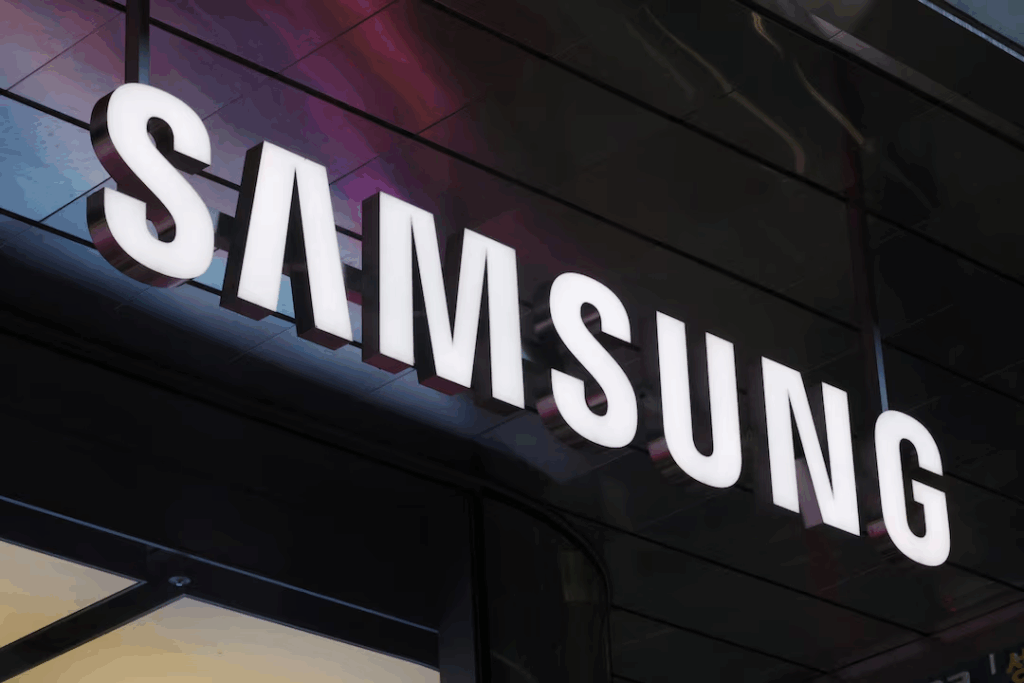
Samsung Electronics on Tuesday said it expects its biggest quarterly profit in over three years, as the global race to boost production of AI chips has tightened supply and driven up prices of conventional memory chips, the tech giant’s mainstay.
Strong demand for conventional memory chips used in artificial intelligence servers helped offset weaker sales of advanced AI chips of Samsung, which have been lagging rivals in the race to supply to Nvidia, analysts said.
The world’s leading memory chipmaker estimated an operating profit of 12.1 trillion won ($8.5 billion) for the July-September period, up 32% from a year earlier and well above a 10.1 trillion won LSEG SmartEstimate. That would mark its best quarterly profit in 13 quarters.
Samsung shares rose as much as 2.9% after the announcement to 96,000 won, their highest level since January 2021, notching up a 79% gain so far this year.
“The third-quarter earnings surprise came from the chip business,” said Ryu Young-ho, a senior analyst at NH Investment & Securities.
Although progress in supplying advanced high bandwidth memory (HBM) chips to major clients such as Nvidia was slower than expected, gains in commodity memory, supported by tight supplies, helped cushion the impact, analysts said.
“Samsung is a big beneficiary of growing demand for commodity chips,” said Sohn In-joon, an analyst at Heungkuk Securities.
Sohn attributed the earnings beat to stronger-than-expected prices of commodity DRAM and NAND chips, stemming from demand for AI data centre servers, and lower chip inventory by chipmakers that gave them bargaining power in pricing.
Analysts said Samsung also benefited from narrower losses at its foundry unit, which makes logic chips, as utilisation rates helped ease fixed-cost pressures.
The company said revenue would likely rise 8.7% to a record high of 86 trillion won from a year earlier, also helped by the weaker South Korean currency.
Samsung is expected to release detailed results, including a breakdown of earnings for each of its businesses on October 30.
SHORTAGE STOKES CONVENTIONAL CHIP PRICES
Analysts said memory makers’ focus on investing in advanced chips in recent years may have limited the production of conventional chips, which extended a supply shortage and spurred price increases for conventional chips.
Prices of some DRAM chips, widely used in servers, smartphones and PCs, jumped 171.8% in the third quarter from a year earlier, according to TrendForce data.
Analysts expect the commodity memory supply shortage to continue into 2026.
Following OpenAI’s success with ChatGPT, big tech companies have established longer-term plans to expand their spending on AI-related investments, including data centres and servers capable of handling the growing workloads from AI services.
While recent chip supply deals with major tech companies, such as Tesla and OpenAI, eased investor concerns about Samsung, analysts cautioned that uncertainties remain, including potential U.S. tariffs that could hurt chip demand, an intensifying trade war between the U.S. and China, as well as China’s tightened export controls on rare earth materials used in advanced chips and manufacturing equipment.
Samsung has been the world’s biggest memory chipmaker for three decades, but it is facing increasing competition in advanced AI chips after losing its No. 1 DRAM market share to SK Hynix in the first quarter of this year.
Its rivals, SK Hynix and Micron, have benefited from robust memory chip demand driven by AI, while Samsung’s exposure to China, where advanced chip sales are restricted by the United States, has constrained its growth.
Analysts expect Samsung’s HBM sales to gradually improve after the company made meaningful progress in supplying its latest 12-layer HBM3E chips to Nvidia following delays in recent quarters, though some said shipment volumes remain limited.
Samsung is betting on next-generation HBM4 products to narrow the gap with SK Hynix. Morgan Stanley said in a report that Samsung is on track with next-generation HBM4 development, working closely with major U.S. customers.
Commercial shipments and sales contributions are expected to begin in 2026.
DISCLAIMER: The Views, Comments, Opinions, Contributions and Statements made by Readers and Contributors on this platform do not necessarily represent the views or policy of Multimedia Group Limited.
DISCLAIMER: The Views, Comments, Opinions, Contributions and Statements made by Readers and Contributors on this platform do not necessarily represent the views or policy of Multimedia Group Limited.
Source: myjoyonline.com










